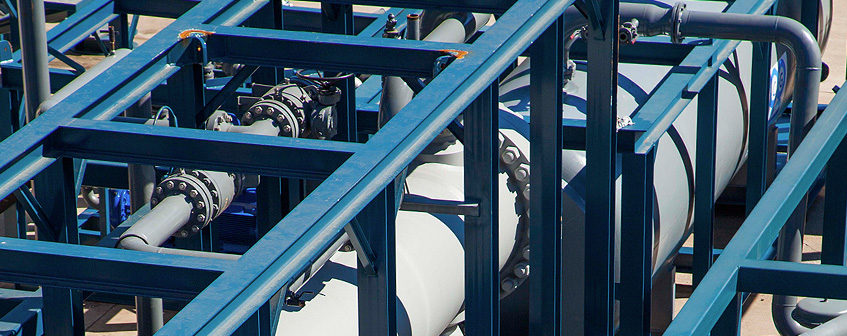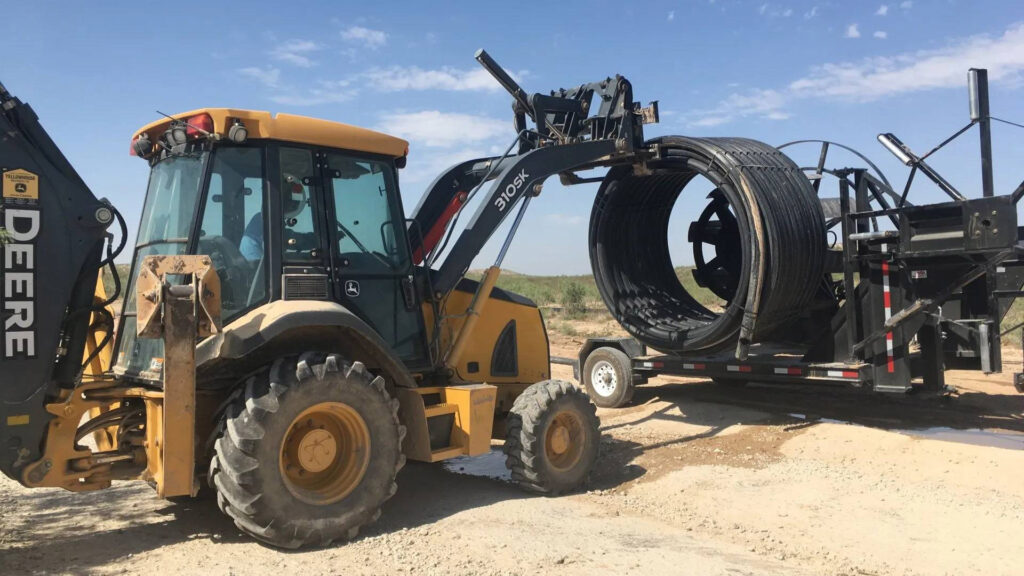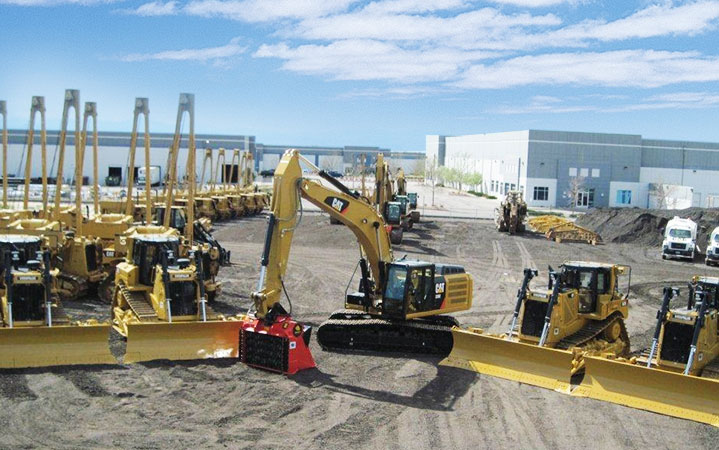Superior Oilfield Rentals Texas: guide to services
A Comprehensive Guide to the Different Sorts Of Oil Field Equipment and Pipeline Equipment Available
The oil and gas market depends heavily on customized equipment for reliable removal and transport. Numerous sorts of equipment, from piercing rigs to tank, play important functions in this complex process. Each item of tools offers distinctive features that add to general operational success. Recognizing these parts is vital for any individual associated with the market. As the market progresses, so too do the innovations that support it. What developments are on the horizon?

Drilling Rigs: The Foundation of Oil Exploration
Drilling rigs offer as the important equipment in the domain name of oil exploration, allowing firms to access hydrocarbon gets hidden deep below the Planet's surface area. These rigs can be found in different kinds, consisting of land rigs, offshore rigs, and mobile systems, each made to run in particular environments. Geared up with innovative modern technology, drilling rigs can pass through geological formations with accuracy, making sure reliable resource extraction. The structural stability and functional capacities of these rigs are critical, as they should stand up to severe problems and substantial stress. The choice of a drilling gear influences the total task cost and timeline, making it an essential consideration for oil companies looking for to maximize their expedition initiatives and optimize efficiency in their operations.
Pumps: Necessary for Liquid Motion
In the oil extraction procedure, the duty of pumps is considerable, facilitating the movement of fluids throughout various phases of production. Pumps are vital for transferring petroleum, water, and various other liquids from underground reservoirs to the surface area and afterwards via pipes to refineries. They can be found in numerous kinds, consisting of centrifugal, positive variation, and completely submersible pumps, each offering details functions based on the fluid features and operational needs. Centrifugal pumps are frequently used for their performance in high-flow applications, while positive variation pumps master dealing with viscous liquids. The choice of pump impacts overall effectiveness, functional safety and security, and upkeep expenses. Proper choice and maintenance of pumps are essential for enhancing manufacturing and reducing downtime in oil area operations.
Shutoffs: Controlling Circulation and Pressure

Shutoffs play a vital duty in taking care of the circulation and pressure of liquids within oil areas and pipes. Various kinds of valves serve distinct applications, each created to meet particular functions essential for effective procedure - Superior rentals squeeze tools. Understanding the characteristics and uses these shutoffs is necessary for optimizing system performance and safety
Kinds of Valves
Vital parts in oil area procedures, valves play a vital role in managing the flow and stress of liquids within pipes and devices. Various sorts of shutoffs are made use of to satisfy the diverse needs of oil and gas manufacturing. Usual types include gateway shutoffs, which supply a straight-line flow and very little pressure drop; world valves, understood for their throttling capacities; and sphere valves, recognized for their quick on/off control. In addition, check shutoffs protect against heartburn, while butterfly shutoffs use a light-weight remedy for controling circulation. Each valve kind is developed with specific materials and configurations to hold up against the severe conditions typically located in oil areas, making certain reliability and effectiveness in operations. Understanding these types is vital for efficient system management.
Valve Applications and Functions
While various sorts of valves serve distinct functions, their key applications focus on controlling circulation and stress within oil and gas systems. Shutoffs such as gate, world, and round shutoffs regulate liquid motion, ensuring peak efficiency and safety and security. Gateway shutoffs are commonly made use of for on/off control, giving minimal flow resistance. Globe shutoffs, on the other hand, deal specific flow guideline, making them suitable for throttling applications. Ball shutoffs are preferred for their quick procedure and tight sealing capacities. On top of that, stress relief valves are important for protecting against system overpressure, securing devices honesty. Overall, the suitable option and application of valves enhance operational effectiveness, ensuring the trusted transport of oil and gas through pipelines and processing facilities.
Compressors: Enhancing Gas Transport
Compressors play an important duty in the efficient transportation of natural gas, making certain that it moves smoothly via pipelines over lengthy ranges. These devices boost the pressure of natural gas, permitting it to conquer rubbing and altitude modifications within the pipeline system. In addition, compressors help with the balancing of supply and website need, fitting changes in usage and production rates. Various kinds of compressors are employed in the industry, including centrifugal, reciprocating, and rotary screw compressors, each offering distinct benefits based upon the operational requirements. Normal upkeep of these compressors is important to optimize effectiveness and lessen downtime, ultimately contributing to a reputable gas transport network. Their critical feature highlights the importance of compressors in the total oil and gas infrastructure.
Storage Tanks: Safe and Efficient Liquid Monitoring
Efficient transport of gas depends on numerous sustaining systems, among which is the correct administration of tank. These storage tanks play an essential duty in securely including fluids, making sure that functional performance is preserved while reducing environmental threats. Constructed from resilient products, they are developed to withstand high pressures and harsh aspects. Properly sized and strategically situated, tank promote the smooth circulation of gas and other liquids, stopping traffic jams in supply chains. Regular upkeep and surveillance are essential to identify leakages or architectural issues, advertising safety and conformity with regulatory requirements. Inevitably, the effective administration of storage space tanks is important for the overall stability and integrity of the oil and gas industry's fluid handling systems.
Pipeline Solutions: Framework for Transportation
Pipeline systems work as the foundation of the oil and gas industry, promoting the effective transport of hydrocarbons over large distances. These systems consist of various elements, consisting of pipes, shutoffs, pumps, and compressors, all meticulously created to assure smooth circulation. The products made use of in pipeline building and construction, frequently steel or high-density polyethylene, are chosen for longevity and resistance to deterioration. Pipeline networks can extend throughout land and water, linking manufacturing websites to refineries and circulation. In addition, advanced innovation makes it possible for real-time monitoring of flow prices and pressure levels, improving functional performance. The strategic placement of these pipelines lessens ecological impact while maximizing resource accessibility, thereby playing a crucial role in meeting energy demands worldwide.
Security Equipment: Making Sure Employee and Environmental Management
The operation of pipeline systems, while vital for energy transportation, likewise offers considerable security challenges for workers and the environment. Safety equipment plays a significant role in mitigating these risks. Personal safety devices (PPE) such as headgears, handwear covers, and non-slip shoes safeguards employees from physical dangers. In addition, gas detection systems check for leaks, ensuring that harmful compounds do not pose a hazard to personnel or the surrounding ecological community. Emergency closure systems are necessary for rapidly halting operations throughout a situation, stopping prospective catastrophes. Spill control materials, including absorbents and obstacles, are essential for reducing ecological influence. On the whole, spending in comprehensive safety devices is crucial for maintaining operational honesty and safeguarding both workers and the environment in the oil and gas field.

Often Asked Concerns
Just how Do I Select the Right Oil Field Equipment for My Project?
Selecting the right oil area tools includes evaluating job specifications, budget restraints, and functional needs. Consider variables such as tools reliability, compatibility with existing systems, and the supplier's online reputation to assure peak performance and security.
What Are the Upkeep Requirements for Oil Field Equipment?
Upkeep requirements for oil area equipment include normal assessments, lubrication, and timely repair work. Operators should likewise follow supplier standards, display efficiency metrics, and assurance conformity with safety regulations to boost long life and efficiency.

How Can I Guarantee Compliance With Environmental Rules?
To guarantee conformity with ecological regulations, companies need to conduct regular audits, apply ideal methods, buy training, keep correct documents, and stay updated on regulations (Superior Rentals midland). Partnership with environmental companies can also boost adherence to guidelines
What Is the Typical Life Expectancy of Pipeline Equipment?
The average life-span of pipeline devices generally varies from 20 to half a century, depending upon factors such as worldly quality, ecological conditions, and maintenance methods. Regular inspections can considerably influence durability and operational efficiency.
Just how Do I Safely Deliver Oil Field Equipment to Remote Locations?
Moving oil area tools to remote places requires cautious planning, consisting of course assessment, securing licenses, utilizing ideal automobiles, and making sure security procedures are followed. Correct training and interaction among teams are necessary for effective transportation.